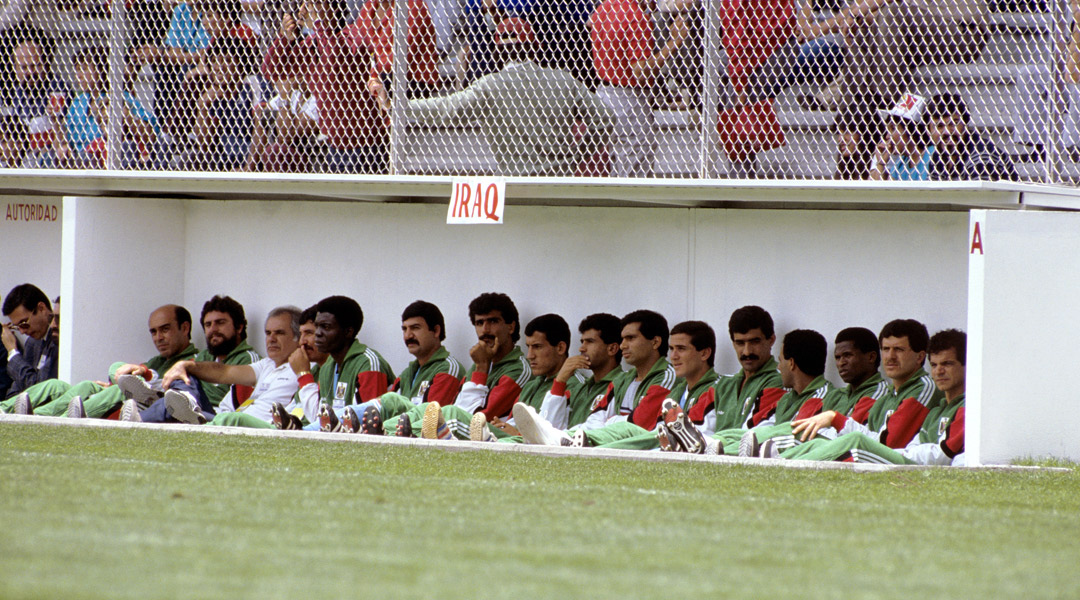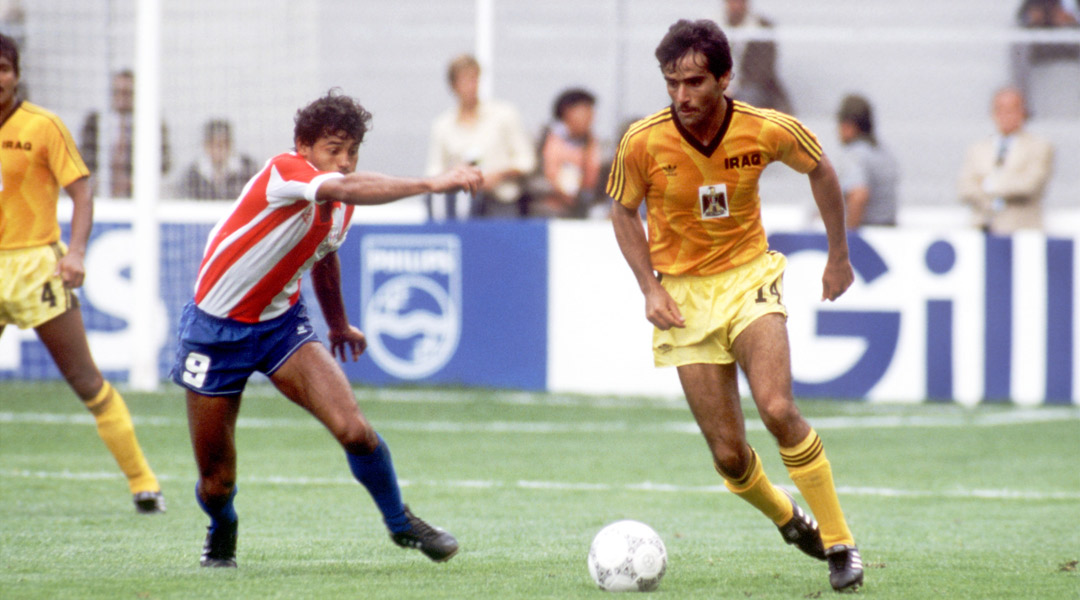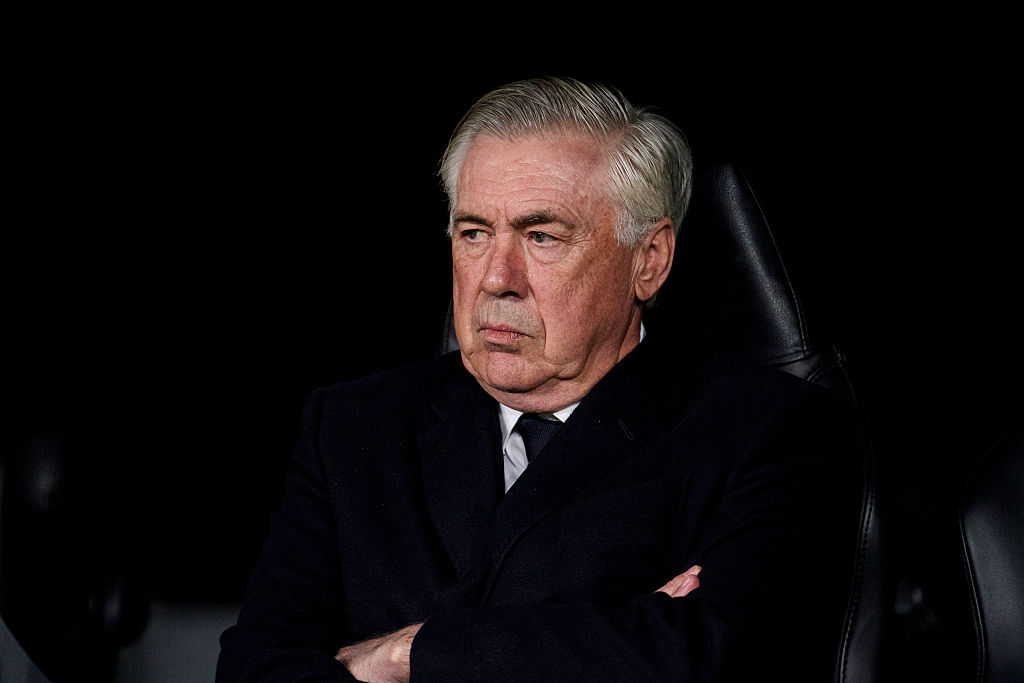"Uday Hussein shaved my perm" - Iraq's fear-filled venture to Mexico '86
The Iraqi national team arrived at Mexico 86 with the spectre of Saddam breathing down their necks. More precisely Uday, his bloodthirsty emissary, son and one-time heir to Hussein'™s brutal political dynasty...

As head of Iraq's Olympic Committee, Uday used more than fear to motivate his players. Instead he relied on beatings, mock executions and torture to ensure victory at every level of the game, from the national league to international qualifiers. "He was a thug. he called us and threatened us with things like physical abuse and sending us to the front lines of the [Iran-Iraq] war," says Iraqi legend Basil Goreis, who played at Mexico 86.
The World Cup was important for Saddam Hussein. The Iran-Iraq war, which would claim more than a million lives, had been raging for six years with no end in sight. The nation's men were being massacred in the mustard gas-filled trenches on Iraq's eastern border, and the nation needed some good news.
But when qualification for Mexico 86 had begun, war had robbed the Iraqis of home advantage. Much like when the modern Iraqi team was banished to neutral venues, but somehow went on to win the 2007 Asian Cup, the Iraqis overcame neighbours Syria in a two-legged play-off. Uday and Saddam sniffed political opportunity.
But conventional preparations hadn't been going so well. Uday refused to consider playing England or Brazil, who had made noises about a possible friendly. Instead, he insisted on a tour of amateur clubs in Brazil. "Uday didn't want to lose," said Goreis. "Even Brazil wanted to play us. Uday used to tell us: 'What's the difference between you and the Brazilian player? You wear Adidas shoes and he wears Adidas shoes.' It was a joke. We ended up playing Flamengo and losing 3-1."

By the time the Iraqis arrived in Mexico, they were ill-prepared and scared to death. Yet Uday had convinced himself that, not only would Iraq qualify from a tough group including Belgium, the hosts and Paraguay, they could actually win it. Accordingly, Uday demanded that the team dropped its traditional colours at the last minute and play in gold. It didn't work. Iraq lost all three games by a single goal, scoring once. Goreis managed to get himself sent off. The Golden Generation of Iraqi football returned home to an angry dictator, who ordered the players be beaten.
"You knew that if you didn't play well, Uday would do something bad," Ahmad-Rahim Hamad, a young striker in that squad, told FourFourTwo in 2007. "I loved Kevin Keegan, he was my best player and I had a perm like him. Uday shaved everybody's hair. That's when I lost my perm."
Uday's sickening taste for brutality was nurtured during his time in charge of Iraqi football. The beatings got worse. According to those who managed to flee the country, Uday was personally involved in the torture of several footballers, boxers and wrestlers. One practice match, after an unsuccessful World Cup qualifier, was played with a concrete football. By the end of the '90s he was throwing tortured sportsmen and women into vats of sewage to infect their wounds.
Get FourFourTwo Newsletter
The best features, fun and footballing quizzes, straight to your inbox every week.
Unsurprisingly, Iraqi football's stock plummeted. From the Golden Generation of the 1980s, the team fell to 139th on the FIFA rankings by 1996. Even today the scars of that era are damaging Iraqi football. Hussein Saeed Mohammed, Iraq's greatest ever player, graduated from the class of '86 to become President of the Iraqi Football Association. But the FA was disbanded in November, and subsequently banned by FIFA, over political interference. Officially, the reason was to root out corruption.
Unofficially, Mohammed's presence, a Sunni who also happened to be Saddam's favourite player, was a divisive figure for the Shia-run Youth and Sports Ministry. "We don't speak of the past," he said before the suspension, when asked about Iraq's experiences at Mexico '86. "No players have suffered like Iraqi players have suffered."
